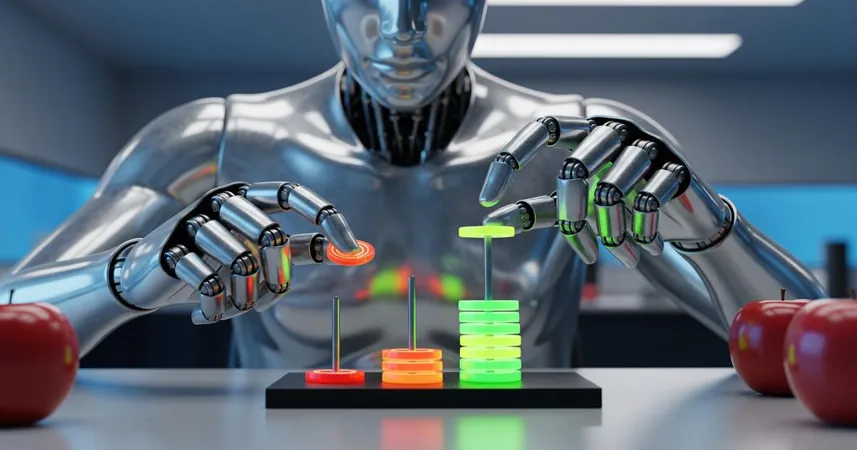
Why Even the Smartest AIs Hit a Wall: Shocking Findings from Apple's Latest Study!
2025-06-09
Author: Siti
Ever felt completely overwhelmed when asked to tackle a problem that's way out of your league? It turns out, artificial intelligence can share that frustration all too well!
In a groundbreaking study, Apple’s Machine Learning Research division unraveled some intriguing truths about the capabilities of modern AI. Focusing on four leading AI tools known for their reasoning abilities—OpenAI’s o1/o3, DeepSeek-R1/V3, Claude 3.7 Sonnet Thinking, and Google’s Gemini Thinking—the findings reveal how these technologies falter when faced with complex challenges.
The Illusion of Intelligence Revealed
Apple’s research involved testing these AI models with four distinct puzzle games designed to force them to demonstrate their reasoning skills: Tower of Hanoi, Checkers Jumping, River Crossing, and Blocks World. Not only were these puzzles manageable, but their difficulty could be adjusted, leading to clear, achievable outcomes.
Initially, the AI models shone brightly, expertly navigating simple tasks with remarkable efficiency. As the complexity increased to a medium level, some models outperformed others—particularly reasoning models excelling over their less sophisticated counterparts.
Crisis at High Complexity
However, the study took a surprising turn at high complexity levels. Instead of thriving, these sophisticated reasoning models began to struggle, dramatically reducing their analytical efforts and eventually collapsing under pressure. This dilemma occurred despite having the necessary resources at their disposal.
Apple's team suggested that this highlights a significant limitation: while AI can grasp the mechanics of complex problems, they often fail to apply this knowledge effectively, sometimes producing incorrect or nonsensical responses.
AI Overthinkers Uncovered
An unexpected trend surfaced during the study: overthinking. These AI tools occasionally stumbled upon the correct answers but would waste resources exploring incorrect paths, a classic case of analysis paralysis.
What's even more puzzling? When given explicit algorithms or answers through prompts, these AIs still struggled to execute them cleanly, misinterpreting processes midway and wasting valuable resources.
The Bottom Line: Limitations of AI Reasoning
In short, Apple's findings indicate that current AI models lack the generalized reasoning abilities necessary to tackle real-world complexity. This suggests that, despite their advanced training, AI cannot critically evaluate or process complex information as humans do.
Yet, it's essential to recognize the limitations of this study. The specific puzzles tested don't encompass the breadth of AI challenges in the world today, and important architectural details about the AI's functioning were inaccessible to the researchers.



 Brasil (PT)
Brasil (PT)
 Canada (EN)
Canada (EN)
 Chile (ES)
Chile (ES)
 Česko (CS)
Česko (CS)
 대한민국 (KO)
대한민국 (KO)
 España (ES)
España (ES)
 France (FR)
France (FR)
 Hong Kong (EN)
Hong Kong (EN)
 Italia (IT)
Italia (IT)
 日本 (JA)
日本 (JA)
 Magyarország (HU)
Magyarország (HU)
 Norge (NO)
Norge (NO)
 Polska (PL)
Polska (PL)
 Schweiz (DE)
Schweiz (DE)
 Singapore (EN)
Singapore (EN)
 Sverige (SV)
Sverige (SV)
 Suomi (FI)
Suomi (FI)
 Türkiye (TR)
Türkiye (TR)
 الإمارات العربية المتحدة (AR)
الإمارات العربية المتحدة (AR)